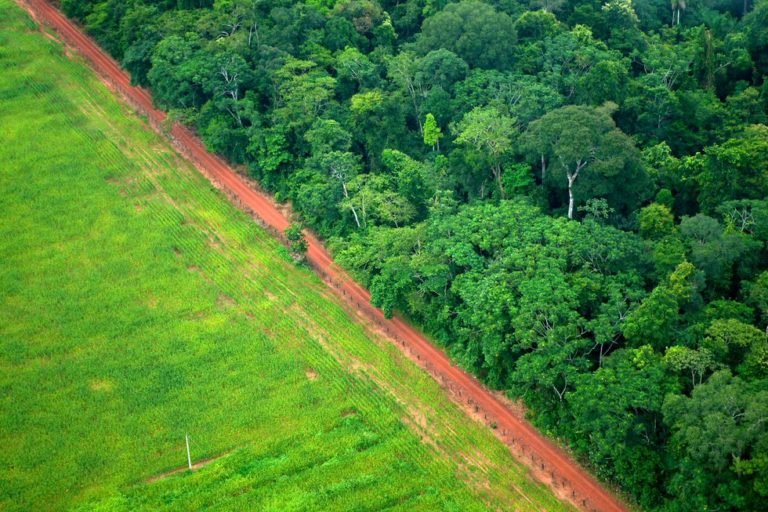- Researchers found that while 90-99% of tropical deforestation in 2011-2015 was driven by agricultural industries, only 45-65% of the cleared land was actually used to grow crops or raise cattle.
- The rest of the cleared land was the result of activities such as speculative clearing and out-of-control agricultural fires, the study says.
- The researchers also concluded that because three-quarters of tropical deforestation is driven by domestic demand, corporate zero-deforestation pledges geared toward expert markets are limited in their ability to reduce this forest loss.
Tropical deforestation is predominantly driven by agriculture, but vast tracts of cleared forest do not become productive land. That’s according to a global review of tropical deforestation published in Science. These findings, the authors argue, underline that corporate zero-deforestation commitments and policies cannot halt tropical deforestation on their own.
Researchers analyzed deforestation between 2011 and 2015 and found that although 90-99% of tropical deforestation was driven by agriculture, only 45-65% of cleared land was used to grow crops or raise cattle.
“Agriculture is the main driver of deforestation, but part of it doesn’t result in actual commodity production,” Florence Pendrill, a researcher at the Chalmers University of Technology who led the study, told Mongabay. “What really struck us was that between a third and half of the cleared land doesn’t seem to actually be used to grow crops or raise livestock.”
The remaining cleared land, the study notes, “is a result of activities such as speculative clearing, land tenure issues, short-lived and abandoned agriculture, and agriculture-related fires spreading to adjacent forests.”
Previous estimates of agro-driven deforestation ranged from 4.3 to 9.6 million hectares (10.6 to 23.7 million acres) per year. The study presents new estimates of between 6.4 to 8.8 million hectares (15.8 to 21.7 million acres) of deforestation per year.
“To me the most striking finding is this role of speculative deforestation,” said Tiago Reis, South America engagement lead for Trase, who was not involved in the study. “Basically, we are destroying biodiversity, we are emitting carbon dioxide to the atmosphere, we are depleting the water recharging capacity of these ecosystems, and we are promoting erosion for nothing.”
At the global level, conversion of tropical forest for pasture is the main driver of forest loss. Oil palm and soy make up one-fifth of deforestation, according to the review. Other crops — including rubber, cocoa and coffee — make up the remaining deforestation.
In addition to these findings, however, Pendrill and her team highlight that across the tropics most deforestation is dedicated to domestic consumption, particularly beef and cereals. International demand, meanwhile, accounts for only around one-quarter of this deforestation.
Based on these findings, though zero-deforestation initiatives and policies targeting export commodities are considered an important strategy to tackle deforestation, the authors argue they are “fundamentally limited” in their ability to do so.
“This, of course, has implications for the policies that we use to address agriculture-driven deforestation,” Pendrill said. “Their goal needs to focus not only on the part that results in specific agricultural production, but also focus more broadly on strengthening forest and land use governance, especially in producing countries.”
To tackle deforestation, supply chain interventions should be combined with landscape approaches, encompassing domestic demand. To better inform these policies, data collection, particularly in African countries, should be improved, the authors state.
“For example, if we look outside oil palm and soy, data for cereals like maize and cassava for some countries is pretty much non-existent,” Pendrill added. “It makes it very difficult for us to understand what the drivers are.”
Banner: Agricultural land abuts forest in Acre, Brazil. In tropical areas, agriculture is the major driver behind deforestation, but research shows that only between one third and half of land is used to grow crops or raise cattle. Photo by Kate Evans/CIFOR via Flickr (CC BY-NC-ND 2.0).











